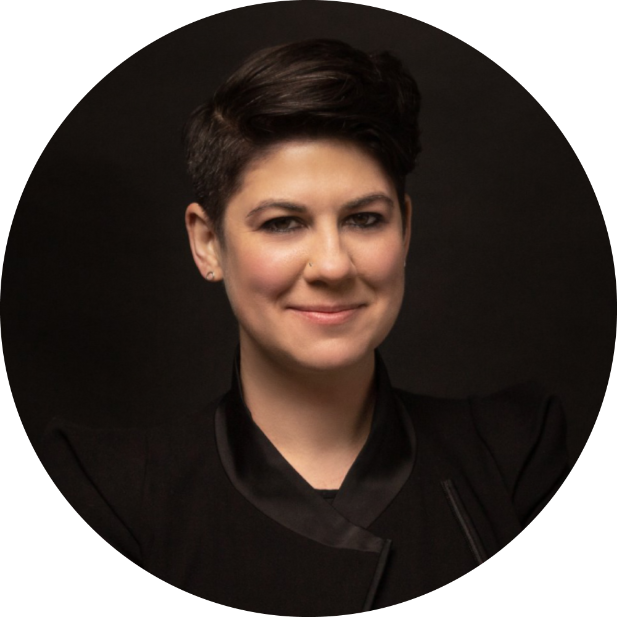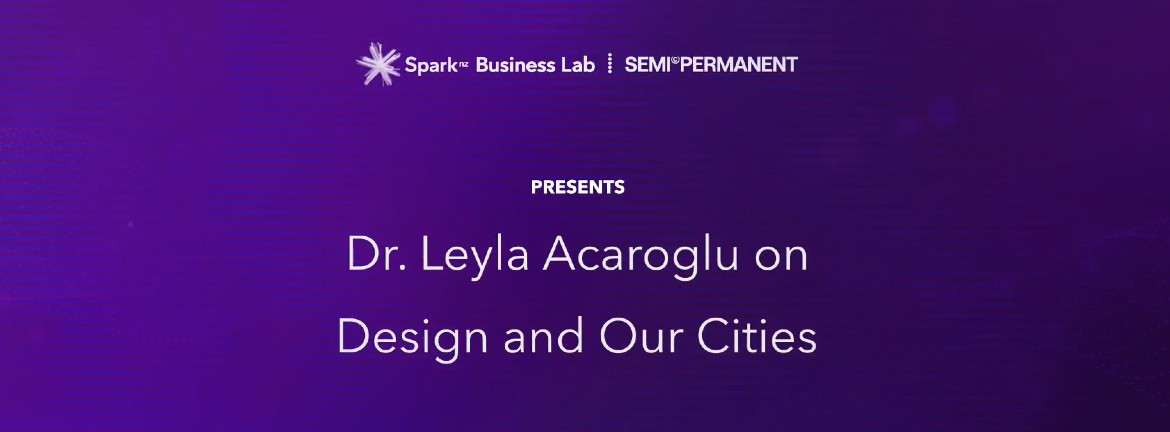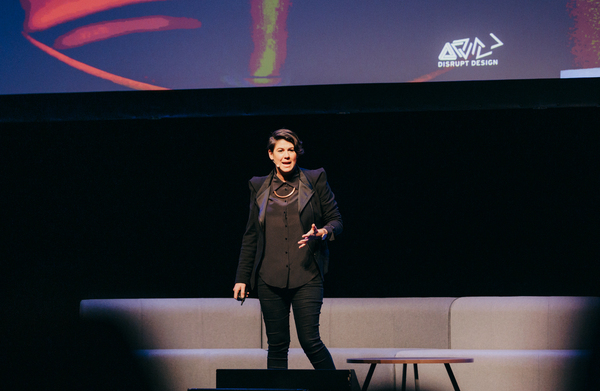
Dr. Leyla Acaroglu
The Unschool & Disrupt Design
The long-term effects of urban planning
Creating sustainable cities requires addressing various aspects. When we step back and look at the big picture, there are specific areas where we can take action to make a positive impact.
Urban planning plays a critical role in integrating sustainable practices into our cities. It shapes not only the physical environment but also the behaviours and lifestyles of the people who live there.
As Leyla describes, “Urban planners should be designing for long-term solutions. These decisions have huge impacts on the social fabric and then the choices that individuals make within that city.”
For example, poorly designed cities may breed aggression due to competition for limited resources such as parking or mismanaged public transport.
On the other hand, research indicates that reintroducing nature into urban environments promotes healthier, more functional, communities and reduces crime rates.
The regenerative approach
The concept of regeneration is embedded in most First Nations and indigenous worldviews. It's about giving back more than you take.
This perspective encourages a shift from extractive and exploitative practices towards a more sustainable and balanced way of life.
One such business is Kono, a Māori-owned top 100 New Zealand food and beverage company. They are embracing regenerative agriculture as part of their 500-year strategic vision. Discover Kono
Kono's approach to regenerative practices is holistic, encompassing not just agricultural methods, but also cultural values and product development. This includes:
- Transitioning the entire organisation from conventional farming practices to regenerative practices. These practices draw down on Māori traditional systems and knowledge.
- Reconnecting their community to their land by growing indigenous crops through Tikanga-led, regenerative principles and practices.
- Demonstrating environmental impact by offering products such as regenerative grass-fed chocolate whey protein isolate. These products highlight how improving soil health through these practices can help retain water in the soil.
Kono adheres to Whenua Ora, a sustainability strategy that prioritises Kaitiakitanga and Rangatiratanga. The aim is to restore the balance between people, place and business.
This is an initiative by Wakatū Incorporation, the parent company of Kono. Learn more about Whenua Ora
For other New Zealand businesses, a regenerative approach could involve reducing waste, improving resource efficiency, investing in renewable energy sources or implementing circular economy principles.
By giving back more than they take, businesses can become leaders in sustainability and attract eco-conscious consumers.
This aligns with the trend of supporting socially responsible companies, which can lead to increased customer loyalty and trust.
Leveraging technology for carbon reduction
Nowhere is this approach more relevant than in the fight against climate change.
Leyla identifies several intervention points in cities where technology can reduce carbon emissions.
These include retrofitting buildings, optimising energy usage, reducing waste and enhancing food systems.
Furthermore, businesses can use technology to encourage sustainable behaviour changes among their employees and customers.
Through gamification and sharing information about sustainability practices, companies can inspire individuals to adopt eco-friendly habits like using public transport or recycling.
By continually adjusting how cities work and how consumers behave within them, we can constantly reduce our environmental impact.
Find out what Spark are doing in this space, to make the places we live, play and work more productive and sustainable. Explore our smart cities and environmental solutions
More articles to spark your interest
Disruptive design method
The Disruptive Design Method, developed by Dr. Leyla Acaroglu, prompts businesses to view problems as part of a larger system, rather than in isolation.
Read moreDesigning for the circular economy
Be honest, do you know if the items you throw away are recyclable or not? Do you sometimes put things in the recycling hoping they'll be recycled anyway? If you can relate to the above, you're not alone. Dr. Leyla Acaroglu has over 20 years of experience in this field and admits to doing it as well.
Read more


